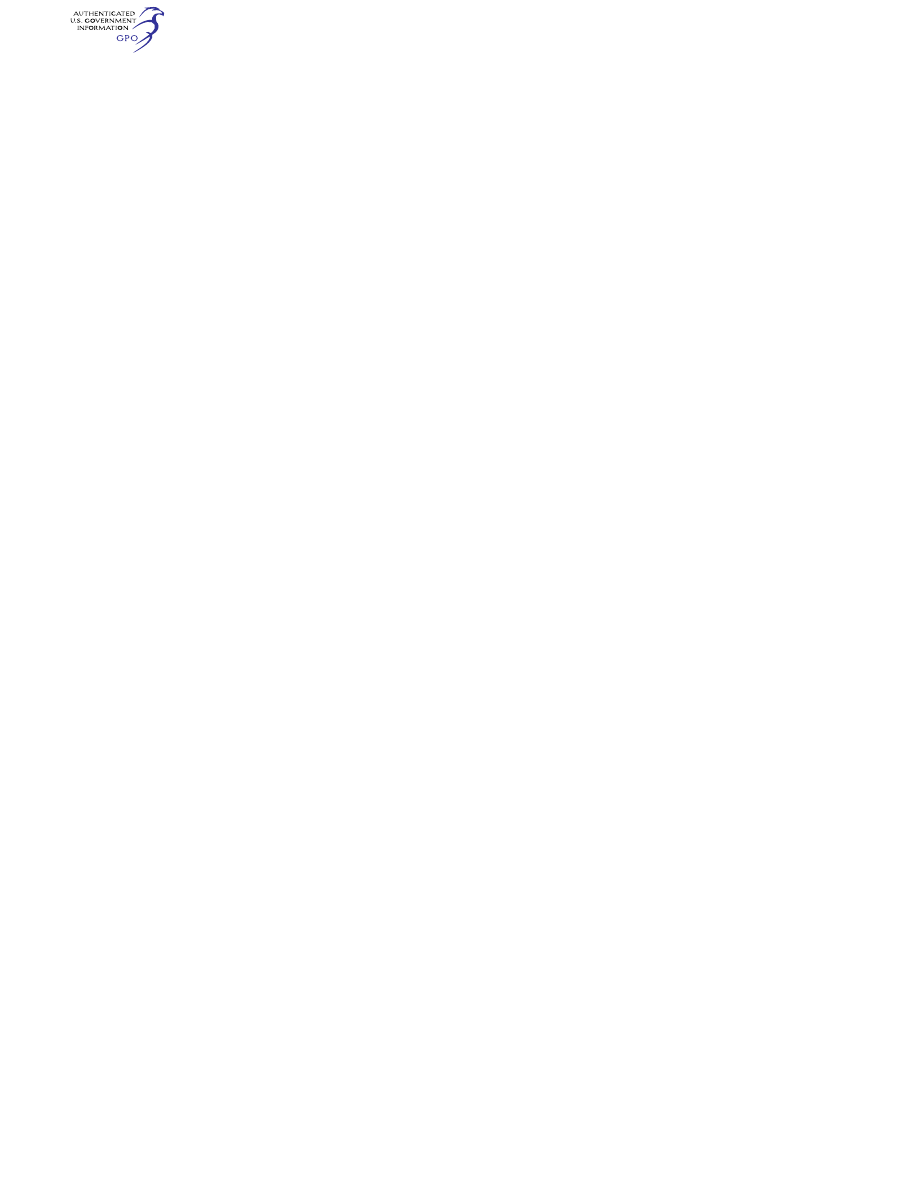
493
Federal Aviation Administration, DOT
§ 27.65
(b) The performance must correspond
to the engine power available under the
particular ambient atmospheric condi-
tions, the particular flight condition,
and the relative humidity specified in
paragraphs (d) or (e) of this section, as
appropriate.
(c) The available power must cor-
respond to engine power, not exceeding
the approved power, less—
(1) Installation losses; and
(2) The power absorbed by the acces-
sories and services appropriate to the
particular ambient atmopheric condi-
tions and the particular flight condi-
tion.
(d) For reciprocating engine-powered
rotorcraft, the performance, as affected
by engine power, must be based on a
relative humidity of 80 percent in a
standard atmosphere.
(e) For turbine engine-powered rotor-
craft, the performance, as affected by
engine power, must be based on a rel-
ative humidity of—
(1) 80 percent, at and below standard
temperature; and
(2) 34 percent, at and above standard
temperature plus 50 degrees F. Between
these two temperatures, the relative
humidity must vary linearly.
(f) For turbine-engine-powered rotor-
craft, a means must be provided to per-
mit the pilot to determine prior to
takeoff that each engine is capable of
developing the power necessary to
achieve the applicable rotorcraft per-
formance prescribed in this subpart.
(Secs. 313(a), 601, 603, 604, and 605 of the Fed-
eral Aviation Act of 1958 (49 U.S.C. 1354(a),
1421, 1423, 1424, and 1425); and sec. 6(c) of the
Dept. of Transportation Act (49 U.S.C.
1655(c)))
[Amdt. 27–14, 43 FR 2324, Jan. 16, 1978, as
amended by Amdt. 27–21, 49 FR 44432, Nov. 6,
1984]
§ 27.49
Performance at minimum oper-
ating speed.
(a) For helicopters—
(1) The hovering ceiling must be de-
termined over the ranges of weight, al-
titude, and temperature for which cer-
tification is requested, with—
(i) Takeoff power;
(ii) The landing gear extended; and
(iii) The helicopter in-ground effect
at a height consistent with normal
takeoff procedures; and
(2) The hovering ceiling determined
under paragraph (a)(1) of this section
must be at least—
(i) For reciprocating engine powered
helicopters, 4,000 feet at maximum
weight with a standard atmosphere;
(ii) For turbine engine powered heli-
copters, 2,500 feet pressure altitude at
maximum weight at a temperature of
standard plus 22
°
C (standard plus 40
°
F).
(3) The out-of-ground effect hovering
performance must be determined over
the ranges of weight, altitude, and
temperature for which certification is
requested, using takeoff power.
(b) For rotorcraft other than heli-
copters, the steady rate of climb at the
minimum operating speed must be de-
termined over the ranges of weight, al-
titude, and temperature for which cer-
tification is requested, with—
(1) Takeoff power; and
(2) The landing gear extended.
[Amdt. 27–44, 73 FR 10998, Feb. 29, 2008]
§ 27.51
Takeoff.
The takeoff, with takeoff power and
r.p.m. at the most critical center of
gravity, and with weight from the max-
imum weight at sea level to the weight
for which takeoff certification is re-
quested for each altitude covered by
this section—
(a) May not require exceptional pilot-
ing skill or exceptionally favorable
conditions throughout the ranges of al-
titude from standard sea level condi-
tions to the maximum altitude for
which takeoff and landing certification
is requested, and
(b) Must be made in such a manner
that a landing can be made safely at
any point along the flight path if an
engine fails. This must be dem-
onstrated up to the maximum altitude
for which takeoff and landing certifi-
cation is requested or 7,000 feet density
altitude, whichever is less.
[Amdt. 27–44, 73 FR 10999, Feb. 29, 2008]
§ 27.65
Climb: all engines operating.
(a) For rotorcraft other than heli-
copters—
(1) The steady rate of climb, at
V
Y,
must be determined—
(i) With maximum continuous power
on each engine;
VerDate Sep<11>2014
09:06 Jun 28, 2024
Jkt 262046
PO 00000
Frm 00503
Fmt 8010
Sfmt 8010
Y:\SGML\262046.XXX
262046
jspears on DSK121TN23PROD with CFR